The term pivot is a stape in every founder’s lexicon, describing when a startup shifts to a new product or strategy in order to grow or survive.
Stewart Butterfield is the undisputed king of pivoting, having twice created unicorn startups from the ashes of failed game development studios.
Butterfield was first known as the founder of the photo sharing service, Flickr. Interestingly, Stewart never even intended to make Flickr. Instead, he had initially set out to make a MMOG game called Game Neverending under the umbrella of his Vancouver-based software development firm, Ludicorp. However, the game was a financial failure and eventually shelved after Flickr emerged from tools originally created for the game. Early versions of Flickr focused on a chat room called FlickrLive, with real-time photo exchange capabilities. Butterfield and his two partners sold the company to Yahoo for around $25 million in 2005, just a year after Flicker launched and three years after Ludicorp was founded.
After a few years at Yahoo, Stewart quit and went back to work on his next game, called Glitch. The game looked amazing and had a vividly imagined story line, but was conceptually similar to Game Neverending — yet again, the game failed shortly after launching.
As history tends to repeat, Stewart again broke out something he and his team had created by accident while making the game: a communications application, based on the system they created while building Glitch. They named the app ‘Slack’.
“Slack is the one mutual platform where all those things [communication in different platforms] come together. That’s the longer-term thinking,” Stewart described the app on the launch.
Slack publicly launched in 2013 after their flagship game Glitch closed down. Within a year, Slack had grown to 120,000 daily users. In 2023 (ten years since the app first launched), Slack had 38.8 million DAUs and brought in $5.96 billion in revenue.
In late 2020, Salesforce agreed to pay over $27B to acquire Slack, their biggest acquisition of all-time. The deal deck highlighted the opportunity for enterprise expansion with Slack.
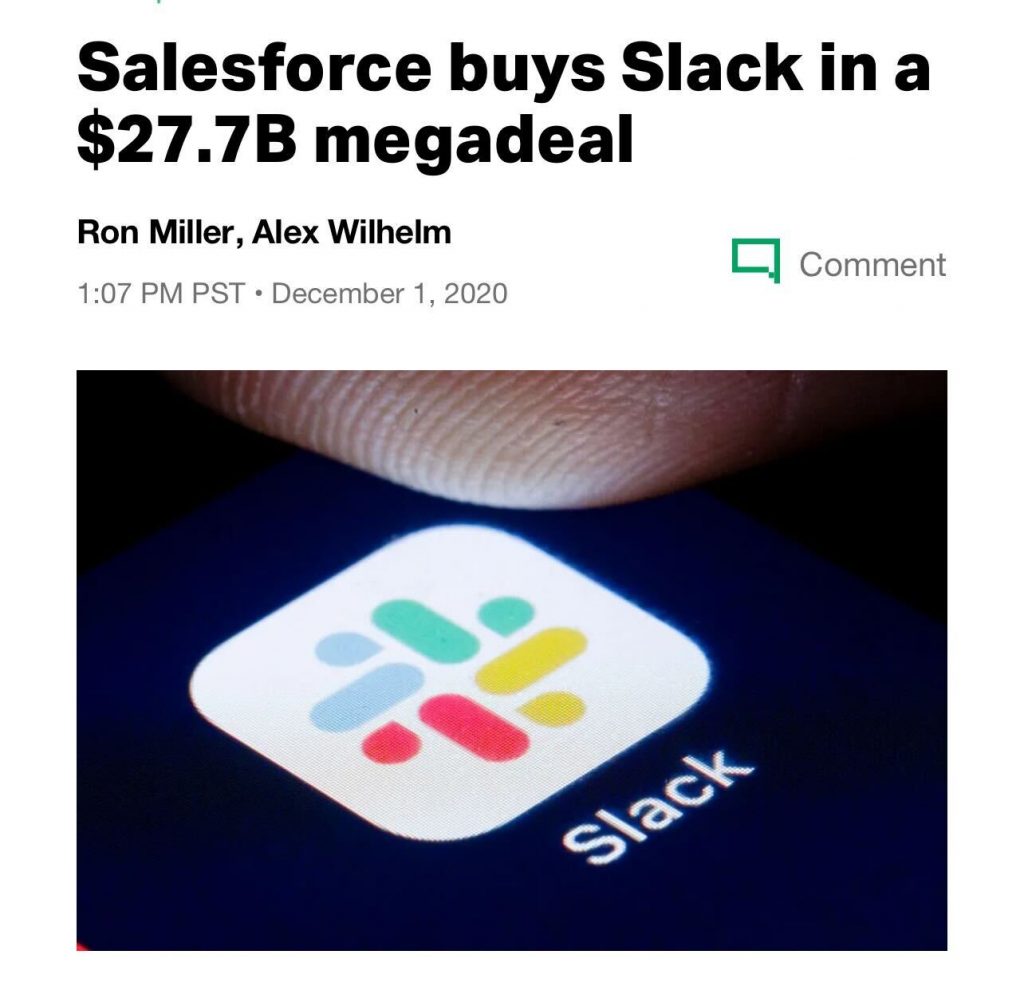
Here’s Salesforce x Slack acquisition pitch deck:
For over 750,000 organizations using the platform in 2024, Slack serves as the engagement layer. It makes conversations happen: back in 2020, on average, users spent over 100 minutes actively using Slack each day, while staying connected to the platform for more than 10 hours daily. The amazing thing about Slack is that it seamlessly integrates with different applications and systems, making sure that collaboration happens effectively in one centralized hub.
With this constant engagement, Slack enhances productivity and communication across teams.
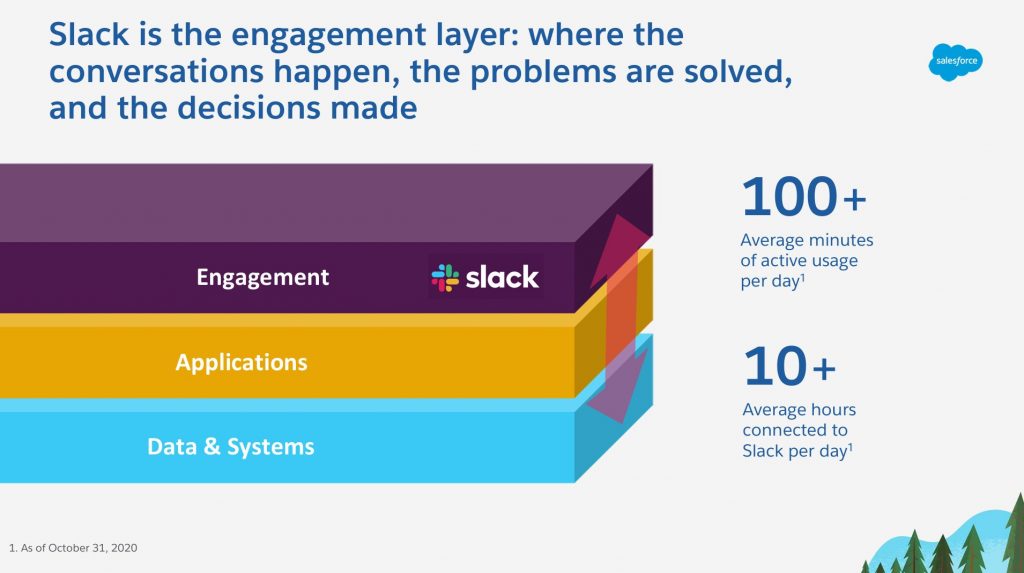
Salesforce, with the acquisition, aimed to combine its strengths with Slack to create an unmatched partnership. At the time of acquisition, both giants posted impressive numbers in their respective industries: Salesforce generated $21.1 billion in FY 2021 revenue with a 23% growth rate, supporting over 5,000 AppExchange listings and employing more than 54,000 people.
On the other hand, Slack reported $876 million in revenue for FY 2021, boasting a 39% growth rate. Slack’s app directory included over 2,400 apps, with a workforce of more than 2,500 employees. Together, they aimed to redefine how businesses communicate and operate at scale.
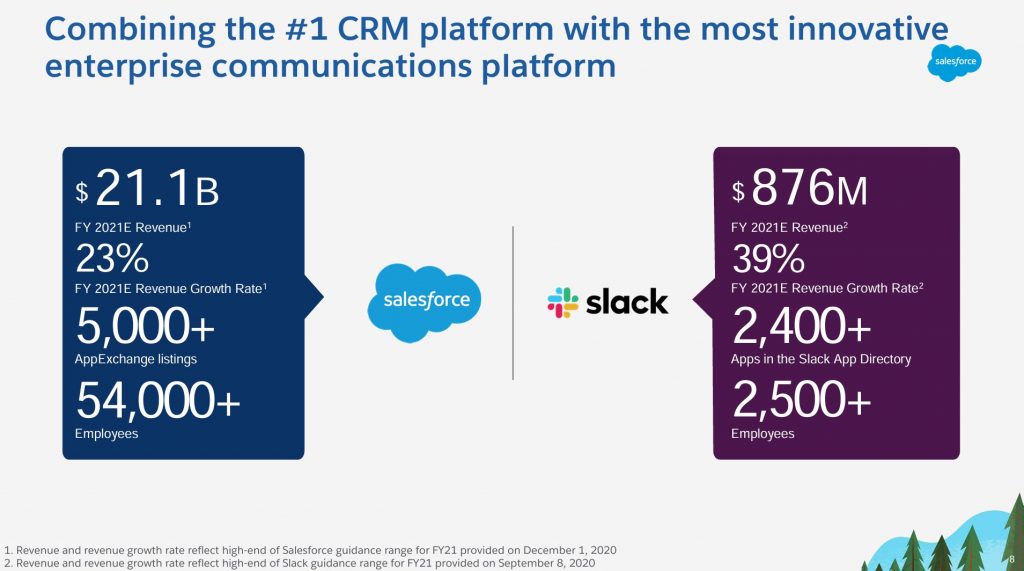
Salesforce’s goal was to leverage its proven strategy for enterprise growth to expand Slack’s reach. At the time of purchase, Slack had 142,000 paid customers, including 1,080 that generated over $100,000 in annual recurring revenue. Salesforce planned to continue scaling Slack’s footprint.
Salesforce also wanted to broaden Slack’s adoption beyond Salesforce’s customers, making it a crucial tool for any business undergoing digital transformation. Just like previous acquisitions, Salesforce aimed to integrate Slack deeply into the enterprise landscape.
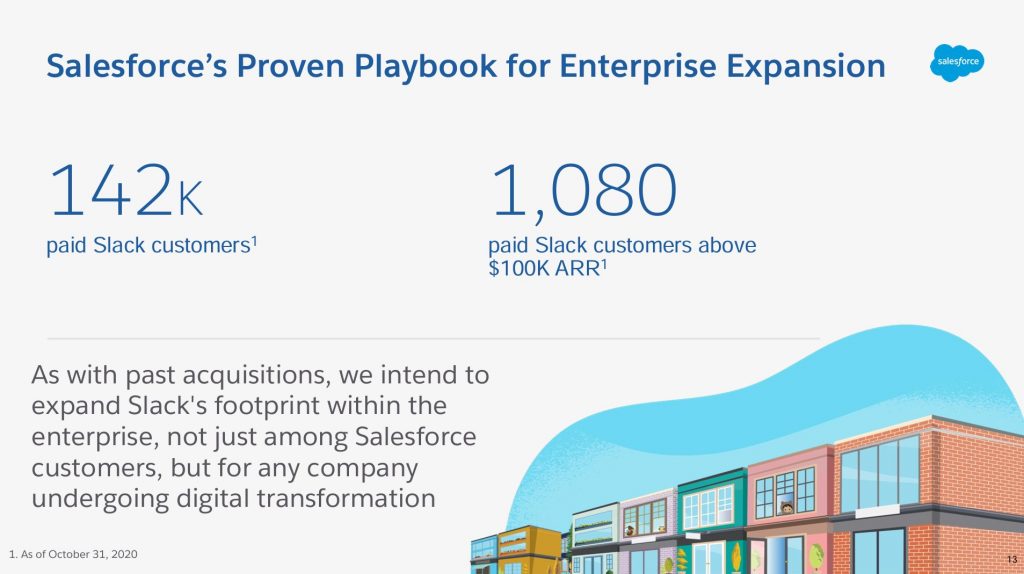
Salesforce announced its acquisition of Slack with an offer for Slack shareholders to receive $26.79 in cash plus 0.0776 shares of Salesforce stock for each Slack share, valuing the deal at about $27.7 billion as of November 30, 2020. Post-acquisition, Slack operated as a unit within Salesforce, led by Slack then CEO. Stewart Butterfield and his team continued their work on enhancing productivity and work simplicity.
To fund the acquisition, Salesforce secured a $10 billion bridge loan and planed to use cash reserves along with additional financing through debt or loans.
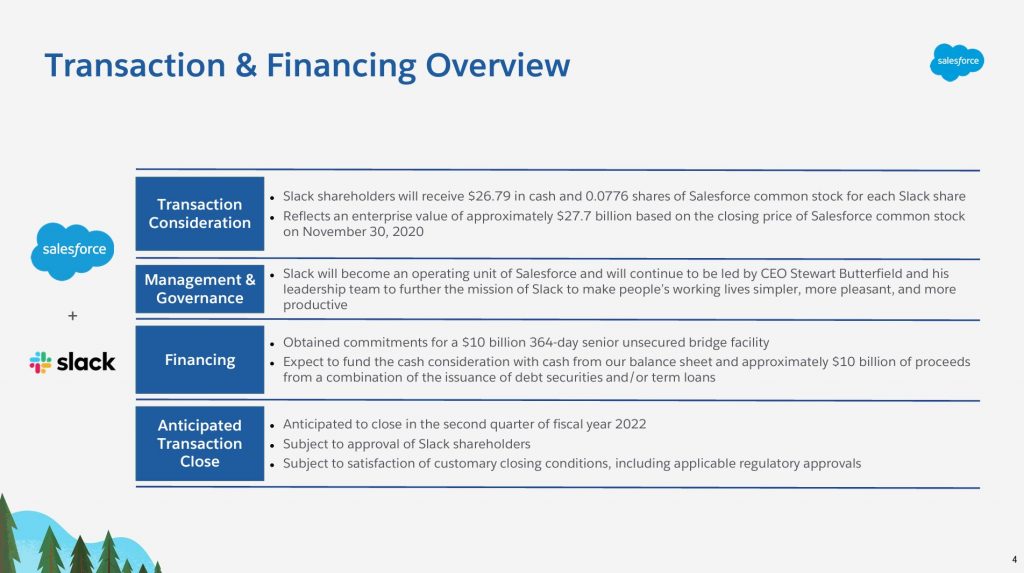
See the full Salesforce x Slack acquisition pitch deck (and thousands more) at bestpitchdeck.com/salesforce-slack-acquisition
